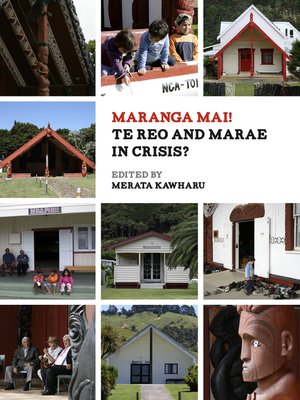
Sign up to save your library
With an OverDrive account, you can save your favorite libraries for at-a-glance information about availability. Find out more about OverDrive accounts.
Find this title in Libby, the library reading app by OverDrive.



Search for a digital library with this title
Title found at these libraries:
| Library Name | Distance |
|---|---|
| Loading... |
From the time of the Maori renaissance of the 1970s and 1980s, Maori made huge efforts to reinvigorate te reo and the life of marae as the twin cornerstones of Maori identity. Maori television and radio stations were set up, the Maori Language Commission established and kohanga reo, kura kaupapa and wananga emerged. Old marae gained new coats of paint and new marae were established on sites ranging from urban university campuses to rural communities. But have the efforts really worked? Now, in 2013, are te reo and marae in crisis? The number of children in kohanga reo is down 34 per cent from its peak. Only 15 per cent of Maori children are attending Maori-medium schooling. And fewer and fewer people are participating in marae activities. Without a living language spoken regularly on the marae, what is the future for Maori culture? Focusing on Tai Tokerau, the northern region of New Zealand, as a case study but with conclusions applicable across the country, the leading Maori scholars and elders in Maranga Mai! call for their people to wake up to these challenges. Through stories and statistics, demography and policy, they identify the key issues and pose potential solutions. Edited by anthropologist Merata Kawharu and with a foreword by Erima Henare, chairman of the Maori Language Commission, the book's other contributors include Ngati Kuri kuia Merimeri Penfold, whose contribution in contemporary Tai Tokerau te reo is also translated into English; anthropologist Paul Tapsell; kaumatua Hone Sadler, with a text in te reo with English translation; linguist Arapera Ngaha; Kevin Robinson, chief executive of Te Runanga o Te Rarawa; educationalist Margie Hohepa; kaumatua Fraser Toi; sociologist Stephen McTaggart; lawyer Kiri Toki; emerging scholars Paratene Tane and Jade Aikman-Dodd; film-maker Michael Hennessy; and photographer Krzysztof Pfeiffer.







